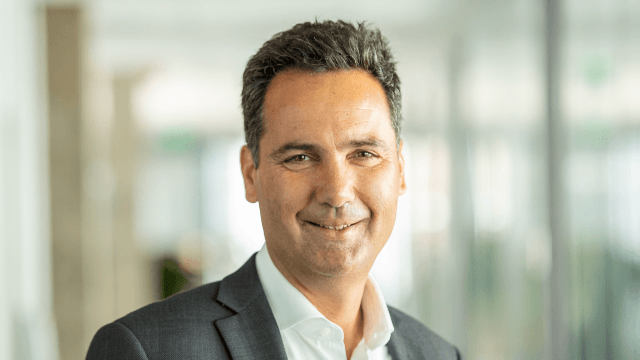The virtues of management by trust: portrait of Hubert de Boisredon (H.86), CEO of Armor.
When Hubert de Boisredon (H.86) took over the reins of the Armor industrial group, the company's turnover was around 120 million euros and its results were close to zero. 16 years later, the Nantes-based ETI, leader in the production of inkjet cartridges in Europe, has a turnover of 274 million euros, a good profitability and employs 2000 people. What is his secret?
"When I joined Armor in 2004, I wanted the company to become a laboratory for management by trust," explains Hubert. A strong dose of optimism was necessary at the time: the shareholders wanted to sell, the troops were demobilised, and the outgoing management had accentuated the divisions. No matter. Hubert listened to his employees, relied on them to recreate a collective dynamic... and turned things around. "The strength of Armor emerged from the teams: I simply brought together existing resources. I think that as a manager, you have to be humble and not position yourself as a 'knower' or as the owner of the company's identity: it belongs to the teams. The manager is like the thread of a necklace: he links the pearls but remains invisible."
Societal innovation at the heart of the business model
The second pillar of Hubert's approach is societal innovation, which he places at the heart of Armor's business model. To take part in the energy transition, the group is diversifying its printing consumables manufacturing activity, developing organic photovoltaic films for solar panels and current collector films for batteries. Hubert was convinced early on, through two experiences, that business could - and should - have a social purpose. In 1985, as a student at NYU, he was struck by the contrast between the poverty in New York and the courses he was taking: "I would pass homeless people on my way to college, but our finance classes taught us that the purpose of business was to maximize profits. This gap led him to create with Laurent Marbacher (H.86) one of the first microcredit banks in Latin America, Contigo, in order to "put money at the service of the common good, to have an impact on people's lives". His second "shock" came at the turn of the millennium, in Asia, when Hubert, working for Rhodia, discovered the pollution caused by Chinese chemical companies: "I was able to see in very concrete terms the disasters caused by companies not taking the environment into account."
Letting go and being vulnerable
To mobilise his teams, Hubert rejects old-fashioned managerial recipes: "Management by pressure is counterproductive. It does not encourage employees to excel. On the contrary, it forces them to protect themselves, whereas a benevolent climate allows everyone to give their best." He also stresses the importance for a manager to accept his or her areas of vulnerability: "There is no point in pretending to be strong. If you are not authentic, employees quickly feel it." Letting go generates a virtuous circle, as illustrated by a founding episode at Armor: "During a seminar, my associates started to point out my mistakes. My first reaction was defensive, but the coach present encouraged me to let them speak. I had a difficult time, feeling that I was losing all my legitimacy as a leader. When I wanted to respond at the end, an associate stopped me with a smile: "That's not necessary. The reason we told you all this is because we trust you". The bonds forged that day have welded the management team together: "They led us to take back control of Armor's capital together, which seemed impossible until then. Since then, we have remained united around the same objective, even though we all have very different personalities and backgrounds."
Alignment, a cardinal virtue
Hubert does not hesitate to denounce hypocritical postures. If a company declares that it is working for the common good, its internal practices must be consistent with its values: "I am shocked by the large groups that have good reasons for being, but whose predatory behaviour (hostile takeovers, abusive layoffs, etc.) shows a profound lack of respect for their teams. How can you claim to mobilise your employees when you act against them?" For Hubert, the key is to align his ideals and his actions with his teams and stakeholders. And to be driven by strong convictions: "Management by trust and societal innovation must be based on a sincere commitment, not on a calculation. If financial performance comes on top of this, so much the better - many managers can testify that a societal vision does not harm their company. But if the search for profitability is the primary driver of decisions, the virtuous circle is not set in motion."
Given Hubert's background, there is no doubt that the future of work belongs to authentic leaders who draw their optimism from the alignment between their ideals and their actions!
Writter : Marianne Gérard for HEC Life Project
Photo credits : ©Oioo.fr

Comments0
Please log in to see or add a comment
Suggested Articles


